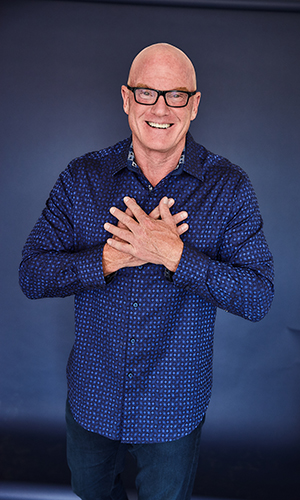A very successful Silicon Valley entrepreneur once told me that the difference between being perceived as a success, a hero, and a disappointment, a “bum,” was whether you under or over deliver on your promises. Whether you miss or exceed others’ expectations. He then told me the story, probably true of a CEO who promised 50% sales growth in one year and only delivered 35% growth to $135 million. Because the CEO over promised and under delivered, he was regarded by his board, investors, and others as a “bum” even though sales increased 35%. A different CEO of a similar company with $100 million in sales promised sales growth of 25%, but delivered 30% growth to $130 million. Even though his company’s sales were less than those of the CEO who was considered a “bum,” this CEO was considered to be a hero because he over delivered.
What do you think of people who consistently deliver on their promises? Aren’t they the same people who mean what they say and do, and do and say what they mean? The same people who “walk their talk”? Do you regard them as dependable? Trustworthy? Someone you want to be around or work with? A “good person.” Someone who makes a positive difference and adds value to the world? If so, one of the many traits of successful people, personally and professionally, is that they consistently deliver on their promises which enables them to meet or exceed expectations.
How often do you deliver on your promises? Always? Most of the time? Sometimes? Infrequently? Never? Knowing how you and others value those that consistently deliver on their promises, what do you do when you fail to deliver on a promise. Ignore and forget it, hoping the person to whom you made the promise does the same? Or do you apologize and do nothing or apologize and do everything in your power to not let it happen again? Broken promises erode your credibility very quickly. Just as it does for those who under deliver on the promises they made to you.
Before I continue allow me to explain the word “fail” which in today’s work is viewed by many as an offensive or politically incorrect word. Delivering on promises and meeting expectations like many things in life are binary events. Either you did or you didn’t. Either you succeeded or failed. Simple as that. Successful people are empowered by their failures. Successful people therefore own their failures.
The first step in consistently delivering on your promises is understanding what constitutes a promise. What do you think? Is a promise only those things which you specifically state are promises? Such as “I promise to call you tomorrow?” What about other statements that express your intentions without using the word promise? Such as “I will call you tomorrow, I plan to call you tomorrow, I’ll try to call you tomorrow, I intend to call you tomorrow, maybe I’ll call you tomorrow, etc?” Once you figure out what for you constitutes a promise, think about all the people that you will make promises to in the next month, year. YOU, your spouse/significant other, your kids, other members of your family, friends, people at work. Hundreds of people. In order to manage their expectations and deliver on your promises don’t you need to inform every one of them what constitutes a promise and what doesn’t? Is this feasible? Definitely not. Not only do you not have the time to provide all those to whom you make promises your definition of a promise but think about them and you trying to keep hundreds of people’s promise definitions straight.
To consistently deliver on your promises to yourself and others perhaps you need a much simpler workable definition of “promise.” If promises create expectations, aren’t promises anything we say or do that creates an expectation in ourselves or others? In other words, it’s not what we actually say or do that constitutes an expectations-creating promise, but what others hear us say or see usdo that they perceive to be a promise. Others’ perceptions thus become our promises’ reality. Such that consistent with what I was told by the Silicon Valley entrepreneur, if we deliver on those perceived promises we’re a hero and if we under deliver on those perceived promises we’re a bum.
Step two in consistently over delivering on your promises is therefore to be mindful of what perceived promises your actions and words are creating in others. And be careful what you say and do. Under promising is one of the keys to over delivering.
Step three in consistently over delivering on promises and helping others to over deliver on their promises is clarity, certainty and communications. If you are mindful and sensitive to what your words and actions are communicating to others, you may detect that you are inadvertently creating a promise or expectation. If you get that feeling, ask if others are perceiving what you are saying or doing is a promise or commitment and if so correct their perception, or specifically state that you are not making a promise or commitment. Similarly for those that you perceive to be making a promise or commitment to you. When in doubt ask them for clarification as to whether your perceptions are correct and they are indeed making a promise or commitment. For much more information on the importance of delivering on perceived promises and expectations and how to consistently under promise and over deliver, namely be a hero, read my book, “Mastering You from the Inside Out, survive and thrive personally and professionally.” Or go to my website www.skipcummins.com.

Skip has lived a life full of opportunities of a lifetime at full throttle, following his maybe wrong but never in doubt philosophy. A life full of extraordinary successes and accomplishments, devastating tragedies, and spectacular mistakes and failures. All of which he owns, has embraced, is grateful for and from which he has learned many valuable lessons. Skip hopes to use his experiential knowledge to help you Master You, personally and professionally.





